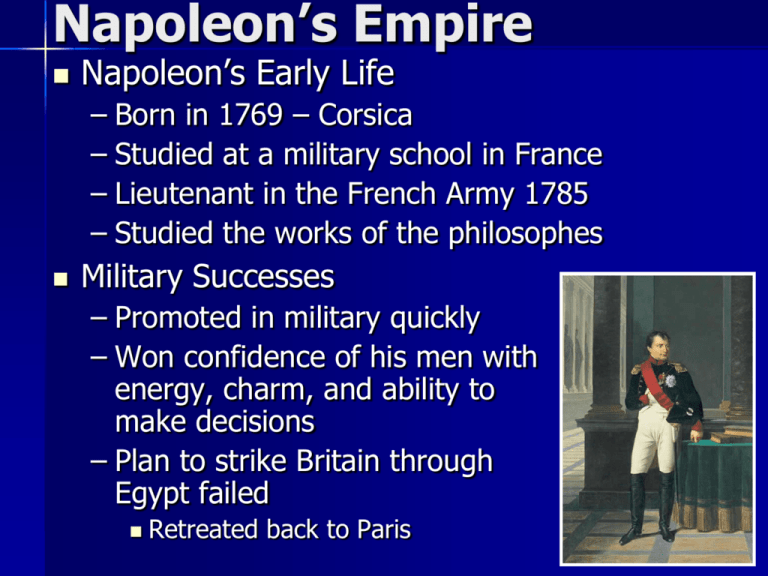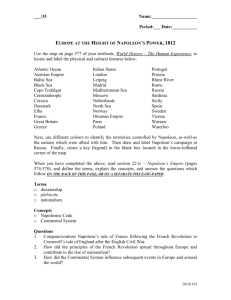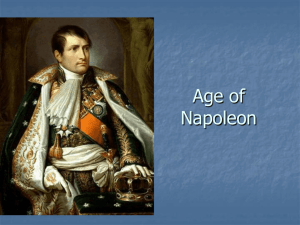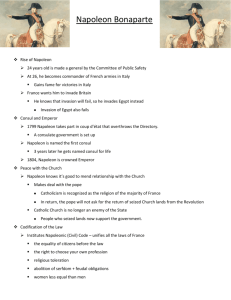Napoleon's Empire
advertisement

Napoleon’s Empire Napoleon’s Early Life – Born in 1769 – Corsica – Studied at a military school in France – Lieutenant in the French Army 1785 – Studied the works of the philosophes Military Successes – Promoted in military quickly – Won confidence of his men with energy, charm, and ability to make decisions – Plan to strike Britain through Egypt failed Retreated back to Paris The Consulate Napoleon declared a new constitution – Actually established a dictatorship Napoleon named first consul Restoring Order – Rejected elected officials for his appointees – Education became controlled by national government – Required all citizens pay taxes Napoleon was popular – Plebiscite approved him as Consul for Life Napoleon’s Domestic Policies Peace with the Church – Restored stability with the Catholic Church 1801 Napoleon made an agreement with the pope Catholicism was recognized as major French religion Pope would not ask for return of seized church lands Codification of the Laws – Before Revolution, France had 300 legal systems – Napoleon prepared seven codes of law – Civil War Code (Napoleonic Code) Recognized the principle of the equality of all citizens Rights of individuals Abolition of serfdom and feudalism Building an Empire 1799 France at war with a European coalition Napoleon achieved peace in 1802 1803 war renewed with Great Britain – Napoleon’s Grand Army won a series of battles, enabling him to create a large empire Building an Empire Britain’s Survival – Due to its sea power – Napoleon tried to destroy them via the Continental System Failed because countries resented being told they couldn’t trade with Great Britain Nationalism – French were hated as oppressors, stirring patriotism of others – French demonstrated what nationalism was Downfall of the Empire Disaster in Russia – Napoleon invaded Russia because they refused to remain in the Continental System – Russians retreated back, refusing to fight Burned their own cities to ensure French had no food – Great Retreat took French through cold conditions – Other European states attacked the crippled French Army Paris captured in 1814 Napoleon exiled to the island of Elba in 1814 Bourbon monarchy restored under Louis XVIII The Fall of Napoleon The Final Defeat – New King had little support, Napoleon escaped – Napoleon gained control over his army, entered Paris on March 20, 1815 – Powers who defeated Napoleon pledged to defeat him again – Defeated at Waterloo on June 18, 1815 Exiled for good to St. Helena Napoleon’s Legacy – Spread ideas of revolution – Destroyed feudalism – Abolished absolute monarchies





